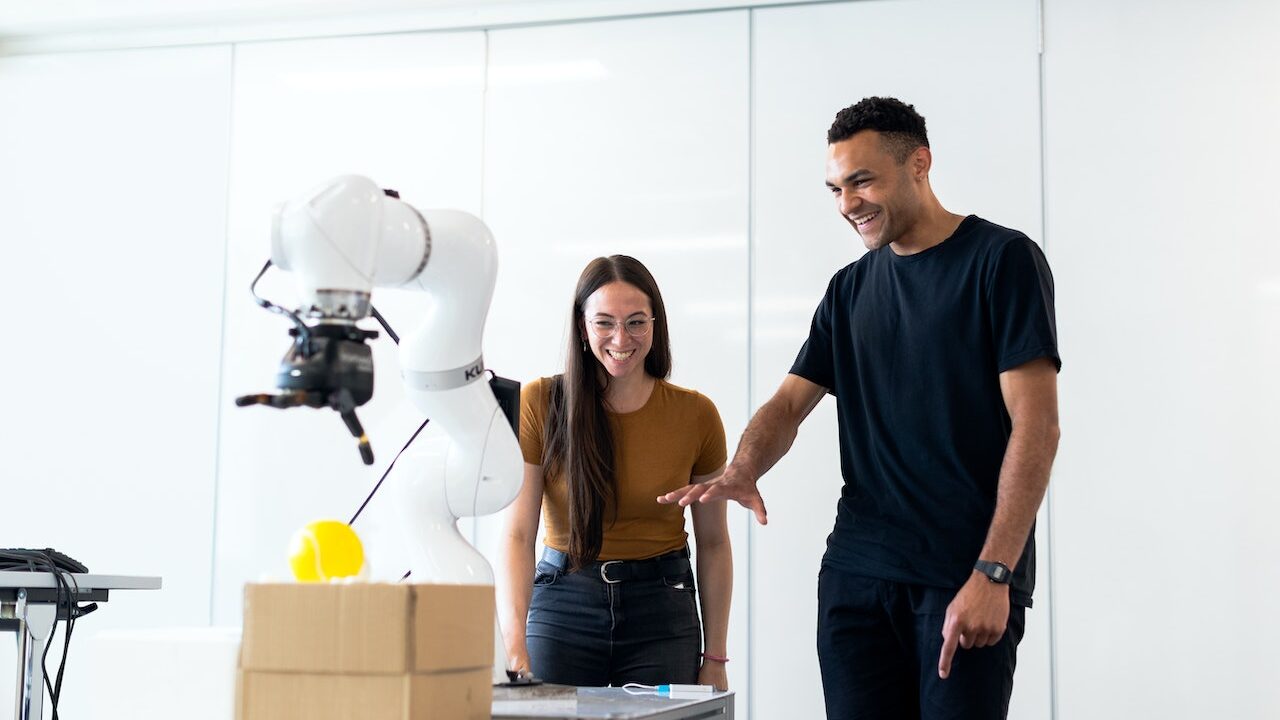
Robots have become an increasingly important part of our daily lives in an ever-changing world propelled by technology breakthroughs. These technological marvels are no longer relegated to science fiction novels and films, but are instead emerging as promising assistants, friends, and problem solvers in our homes and workplaces. As humans, we are only now beginning to understand the numerous ways in which robots might improve our well-being, convenience, and productivity. Robots are transforming human existence in significant and beneficial ways, from supporting humans with routine jobs to improving industries with their precision and efficiency.
Robots have the ability to help people in a variety of ways, making tasks more convenient, efficient, and safe. Here’s an overview of how robots can assist people in their daily lives:
The Most Important Advantages Of Robots In Our Daily Lives
Robots are mechanical or virtual devices that can conduct tasks automatically or with human assistance. Their ability to sense and interact with the physical or virtual environment, making decisions and carrying out actions based on pre-programmed instructions or artificial intelligence algorithms, distinguishes them.
Improving Efficiency and Productivity: Unlike people, they do not tire, get tired, or need breaks, allowing them to operate nonstop around the clock. Robots free human workers to focus on more difficult and creative work by automating repetitive and tedious jobs, encouraging innovation and overall productivity.
- Precision and Accuracy: They are known for their extraordinary precision and accuracy, making them helpful in industries that require precision. They lower the danger of accidents and improve overall quality by minimizing human errors. Robots play an important role in guaranteeing the reliability and safety of finished products in industries like aerospace and electronics, where accuracy is required.
- Exploration and Innovation: They have become pioneers in exploration, allowing humans to explore unexplored territory and overcome physical restrictions. Rovers and probes in space exploration have allowed us to collect priceless data from faraway planets and moons, enhancing our understanding of the universe. Underwater robots explore the ocean’s depths, learning about marine ecosystems and discovering new species.
- Improving Safety and stake Mitigation: Excel in circumstances where human safety is at stake. Robots can do jobs that might otherwise expose humans to harmful situations in hazardous workplaces such as nuclear power plants or chemical factories. They can easily execute inspections, handle poisonous chemicals, and travel hazardous terrain. By using robots in certain instances, we can reduce risks, save lives, and avoid accidents or tragedies.
How Can Robots Technology Help Humans in Daily Routine
Household Tasks
Vacuuming, mopping, and lawn mowing are just a few of the dull and time-consuming household jobs that robots can handle. Robotic vacuum cleaners and lawn mowers can navigate and clean the floors or trim the lawn autonomously, freeing up time for people to focus on other things.
Care for the Elderly
They can be of great aid to the elderly in daily duties and healthcare. They can assist with medicine reminders, vital sign monitoring, companionship, and even movement. Robotic exoskeletons and robotic prosthetics can help people with mobility disabilities regain their movement and freedom.
Healthcare
They can help doctors and nurses in a variety of ways in the healthcare industry. They can conduct repetitive duties like medicine administration, patient monitoring, and sample collection, decreasing healthcare workers’ workload and allowing them to focus on crucial care. Surgeons may now execute minimally invasive treatments with more precision and control thanks to robotic surgical devices.
People with Disabilities Assistance
Individuals with disabilities can benefit from the assistance of it in their daily tasks. Robotic arms or exoskeletons, for example, can assist people with limited movement with tasks such as eating, dressing, and holding objects. Visually impaired people can benefit from robotic guide dogs or support robots to help them navigate their surroundings.
Education
They are being introduced into educational environments to help students learn and grow. Educational robots can interact with students, teach coding and programming skills, and create tailored learning experiences. They can also help educators by automating administrative processes and providing performance statistics.
Personal and housekeeping assistance
Such as Amazon Alexa or Google Home, can provide voice-activated help in controlling different parts of the home, such as lighting, temperature, entertainment, and information retrieval. They can also help with communicating, setting reminders, and managing calendars, all of which help to make daily living more organized and efficient.
Wrapping Up
We are entering an exciting new chapter in human history as robots become more interwoven into our daily lives. These technical wonders are becoming more advanced, capable, and user-friendly. As we embrace the robotic revolution, we must acknowledge the enormous potential they have to improve our lives.
They have the ability to augment human capabilities by simplifying daily chores, increasing productivity, and improving overall quality of life. We should expect even more uses and innovations that will further incorporate robots into our daily lives as technology advances and robotics evolves.








